Following a call for applications, Cauchi, together with filmmaker, producer and director of the company Shadeena Martin Bonnici, created a winning plan for this eight-part TV series and was awarded €80,000 to be used for the fruition of this project.
"When the call came out last year, Martin Bonnici thought it might be a good opportunity for us to work together. We had been meaning to do so for some time and we thought that my passion for documentaries and his experience making narrative fiction would make for an interesting collaboration," Cauchi explained to The Malta Independent.
The duo immediately started working on the concept for this project which involved a lot of reading on Maltese authors in order to find the right stories to focus on while evaluating how to strike a balance of genders and ages, as well as a variety of writing styles.
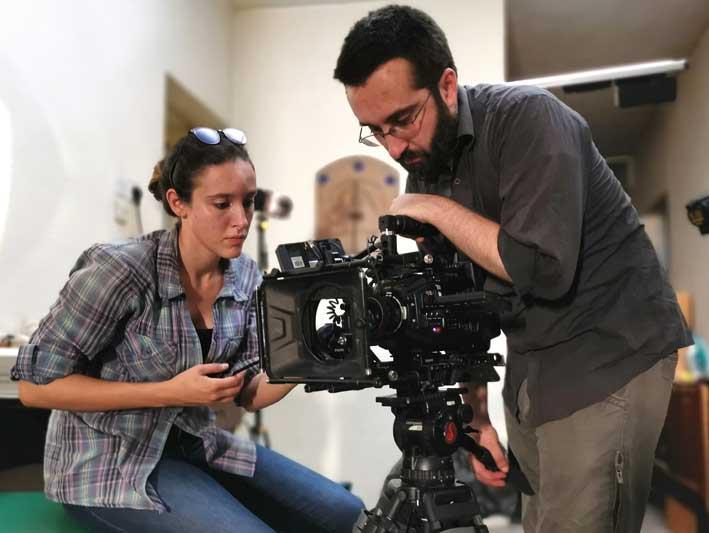
Could you walk me through what a day working on 'Storja ta' Storja' looked like?
"Well not really because every day was so varied as each episode was so different," Cauchi said.
Even the documentary side of the project worked very differently to what she is normally used to. She explained that usually she talks to interviewees over a period of time but, in this case, she only had the opportunity to meet them on the day of the interview, with some lasting only an hour or two.
It was also important for the project to ensure that the interviews took place in the authors' own surroundings. In fact, Sajjetta conducted two of its interviews in Brussels (Alex Vella Gera and Loranne Vella) and one in Australia (Lou Drofenik).
"When it came to the short fiction films, we usually had only 2 days to film the scenes, so our days were extremely long and very fast-paced."
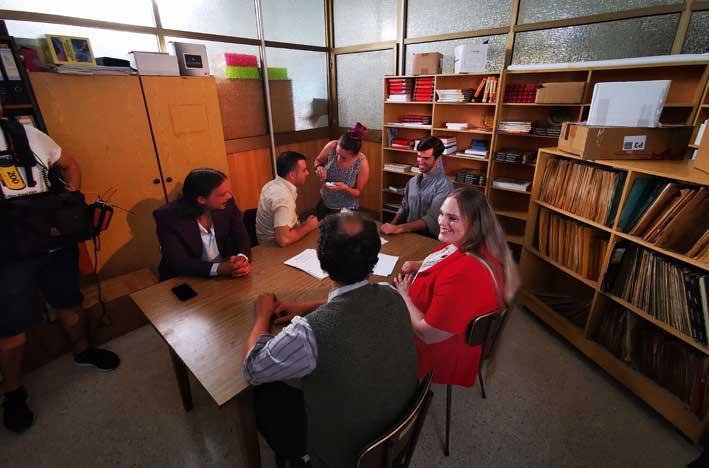
How long did it take to produce all of the episodes? And how many teams/people were involved?
"We tried to keep the same crew throughout, which was lovely because we were able to nurture our working relationships. We also worked with a multitude of actors."
One core individual was Teodor Reljic who joined Cauchi and Bonnici as a script writer during the pre-production phase.
Cauchi explained that due to our budgetary restraints they had to limit themselves to a small crew, keeping it to roughly 6 people each time; though bigger teams were brought in if the story required it.
Notably, the fund awarded to the company went into covering all costs, from pre-production through to post-production as well as paying cast, crew, equipment, location fees, travel fees, overheads like insurance and more.
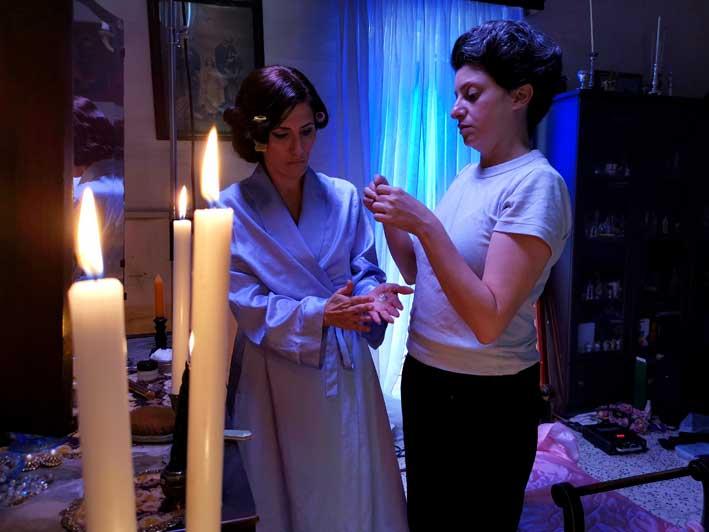
What was the most enjoyable part of this experience and, counter wise, which was the most challenging?
"Well, being exposed to more literary work in Maltese or by Maltese authors was a definite highlight. It was also great to have the chance to get to know the people behind the works we had chosen. And because this series also has a fictionalised element to it, I was able to work with some very talented actors, who I had mostly only seen perform in theatre productions," Cauchi expressed.
Nonetheless, alongside these benefits, came a number of challenges, primarily the fact that Cauchi and Bonnici were a two-person team, working to such a quick turnaround was tough.
"Time was extremely tight, especially if you consider that we had to choose the right stories, adapt them, and create what is essentially 8 narrative fiction films and 8 documentaries, and one of our interviews took place in Melbourne. I think the older you get the worse the jet-lag...it was brutal."
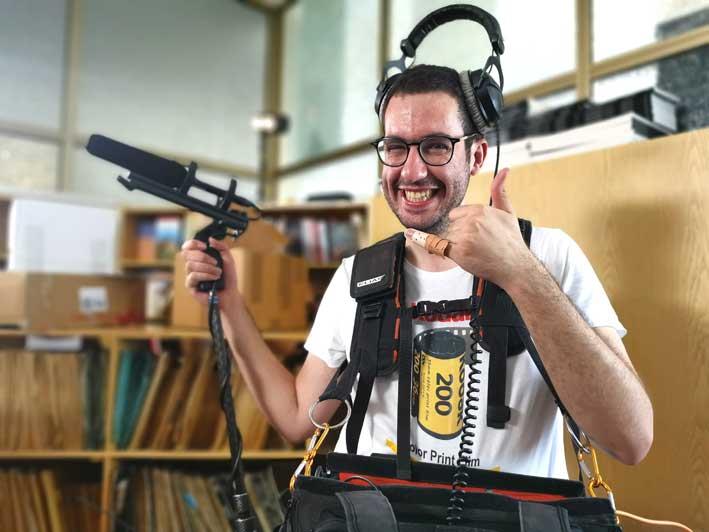
Where does your love for audiovisual projects come from, and what inspires your work?
"Film is really important to me. I read for a Bachelor and Master of Arts in Film at Queen Mary University of London. I had also started a PhD at my alma mater, focusing specifically on filmmaking in Malta. But I am happier making work than writing about it," Cauchi said.
Producing documentaries is very dear to her heart, but she has always hoped of moving into the field of narrative fiction, in fact, in her work as a visual artist is a blend of both.
Cauchi gets her inspiration from every aspect of life but tends to latch on to subjects that resonate with her at that particular point in time.
"It also depends on what life has thrown at me. My own experiences usually come through in my more personal work and are a big part of my artistic practice."
What about the company itself, Sajjetta, how did that come about and what does the name signify?
"I established the company when I moved back to Malta from London and I was working on my documentary 'From Malta to Motor City', which was part of Valletta 2018. It was also supported by the Malta Film Fund and in order to secure funding you had to have a production company," Cauchi explained.
The name Sajjetta is a play on the surname Saetta, an homage to her mother who passed away a year before the company was set up and who always mentioned the surname as being part of her lineage.
Sajjetta, meaning 'lightening' when translated from Maltese to English, is also a symbol of illumination.
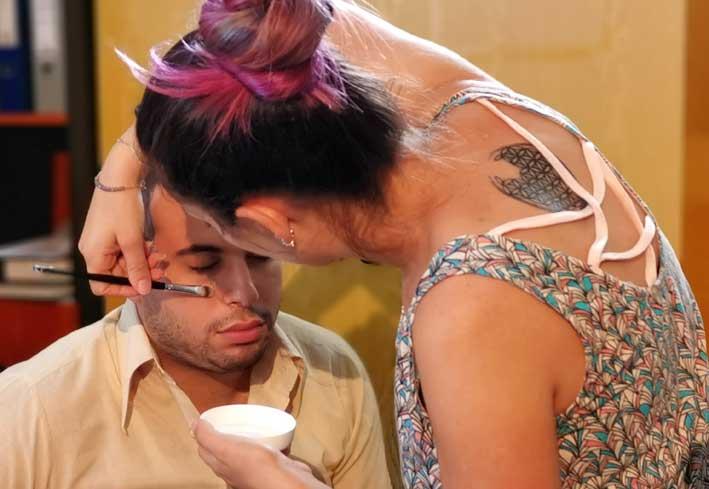
Do you share a love for literature? If so, how was this experience of meeting established Maltese authors like for you?
"Yes, I really do. My flat is like one large library. But to be honest with you, I had no idea how varied Maltese literature was," she said.
Cauchi learned Maltese when she moved to the island at the age of 12 where she had to quickly study and take up the language to keep up with lessons at her government school, as most of the lessons were delivered in Maltese.
"Before I went to school here all I could really say were words like ġelat and baħar; (ha ... obviously I spent every summer here). So, in school I was always more focused on trying to understand just so I could get by."
Unfortunately, this meant that she did not have the confidence to read in Maltese for pleasure and the school she used to attend did not really push for students to immerse themselves in the world of literature.
"This was so different from being at primary school in the UK where we were taken to the library every week and a lot of my education revolved around storytelling. While I was studying, I tended to read Maltese if I was researching a specific subject. But what a shame, because there is so much Maltese literature out there to explore."
For this reason, working on this project was a real eye opener for Cauchi who has now started to incorporate more Maltese works into my reading.
"Better late to the party than missing it entirely!"